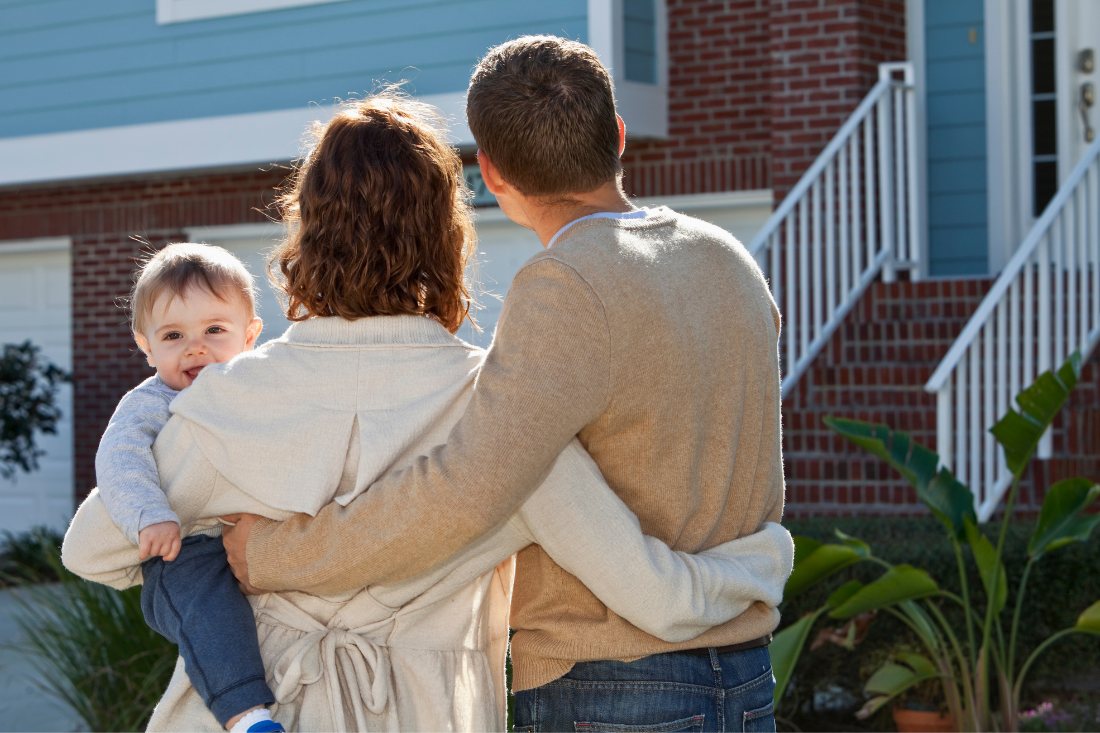The essential guide to first home buyer grants

The essential guide to first home buyer grants As parents, we want the best for our children, particularly when they’re making a major purchase. When it comes to buying their first home, knowing what government assistance is available can make all the difference. Read on to learn about the First Home Owner Grant (FHOG) in each state and territory.
Watching your children buy their first home can be exciting – and overwhelming. You see them working hard to save that all-important deposit, looking at properties, and counting down the days until they can move into their own place.
However, your kids’ ‘great Australian dream’ could actually happen sooner than you (and they) think. Thanks to government efforts to accelerate home ownership and boost the home building industry, first home buyers are now eligible for grants and subsidies.
Each state and territory provides some sort of financial assistance to first home buyers. Here’s a basic overview of what’s on offer at the moment. Please keep in mind that this information can change.
New South Wales
In NSW, first home buyers are entitled to a one-off range of grants, exemptions and concessions when buying or building a new home.
The First Home Owner Grant (New Homes) scheme provides $10,000 to eligible first home buyers to help buy or build a new home. The value of the new home purchased must not be greater than $750,000. At least one of the home owners will need to live in the property for a continuous period of at least 6 months.
Through the First Home - New Home scheme, first home buyers are exempt from stamp duty (also known as transfer duty) on new homes up to $550,000, and on vacant land up to $350,000. They will receive stamp duty concessions on new homes valued between $550,000 and $650,000, and on vacant land valued between $350,000 and $450,000.
Victoria
The FHOG of $10,000 is available to first home buyers for new homes valued up to $750,000. It requires at least one applicant to live in the property continuously for a minimum of 12 months.
The FHOG doesn’t apply to established properties. However, whether the home is new or established, first home buyers can apply for the first home buyer duty concession of up to 50 per cent (for homes valued at $600,000 or less). Depending on eligibility requirements, some first home buyers may also receive a principal place of residence (PPR) duty concession (for homes valued at $550,000 or less).
Queensland
The Great Start Grant (previously known as the First Home Owner Construction Grant) of $15,000 is available to people buying or building a new home up to the value of $750,000. All of the grant applicants must live in the home continuously for at least six months.
It may be possible to reduce the amount of duty on a first home, either through the first home concession or the first home vacant land concession. The Queensland Government has created a handy table to explain the differences between each first home benefit.
South Australia
The South Australian Government’s FHOG offers people buying or building new homes a grant up to $15,000, provided the market value of the property doesn’t exceed $575,000. All of the applicants must live in the home continuously for at least six months.
There’s also an incentive to support the construction of city apartments, with off-the-plan buyers being eligible for partial stamp duty concessions on apartments within a defined geographical area. These concessions currently have an end date of 30 June 2016, so check the RevenueSA website for updates.
ACT
The FHOG in Canberra is currently $10,000 for purchasers of new property up to the value of $750,000. There’s a residency requirement of one year for at least one of the home owners.
The ACT Government offers a range of assistance to home buyers, including the Home Buyer Concession Scheme (HBCS) and Deferred Duty.
The HBCS applies to new homes, but there is a property ownership test, and thresholds on both the property value and the home buyer’s income. The conditions generally change every 12 months, so check the ACT Revenue Office website for the latest information.
If the buyer qualifies for either the FHOG or the HBCS, they can apply to defer payment of the duty. If the buyer would have qualified for the FHOG but they’re buying an established property, they can still apply to defer the duty payment.
Northern Territory
This scheme offers a FHOG of up to $26,000 to first home buyers and builders if the new property is valued up to $600,000. It requires at least one applicant to live in the home continuously for a minimum of 6 months.
Western Australia
First home owners can apply for Western Australia’s FHOG of $10,000 if they’re buying or building a new property. The maximum value of the property can be $750,000 if the property is located south of the 26th parallel of south latitude, or one million dollars if located north of the 26th parallel of south latitude. Each applicant must live in the home for a continuous period of at least six months.
All first home buyers, whether purchasing a new or established property, may be entitled to the First Home Owner Rate of Duty. The value of the home must not exceed $530,000.
First home buyers of properties up to $400,000 might also be eligible for a grant from the Home Buyers Assistance Account. This provides up to $2000 for incidental expenses associated with purchasing a first home. In order to apply for this grant, buyers must meet certain criteria, including purchasing through a licensed real estate agent and having their loan financed through a lending institution, and they must intend to live in the home for at least 12 months. The home must be established or partially built, not vacant land or a house and land package.
Tasmania
Tasmania’s FHOG offers $10,000 to eligible first home buyers and builders. The property must be new or off-the-plan, and all of the grant applicants must live in the home for a continuous period of at least six months.
Land tax is not payable on a principal place of residence. First home buyers should apply for a principal residence land classification.
The good news is that financial assistance is available to first home buyers all around Australia, so your kids could enter the property market sooner than you think. However, the rules are different in every state and territory, so it’s a good idea to thoroughly review the requirements. A mortgage broker will have the latest information, and will be able to explain how each grant or assistance scheme relates to your personal situation.





